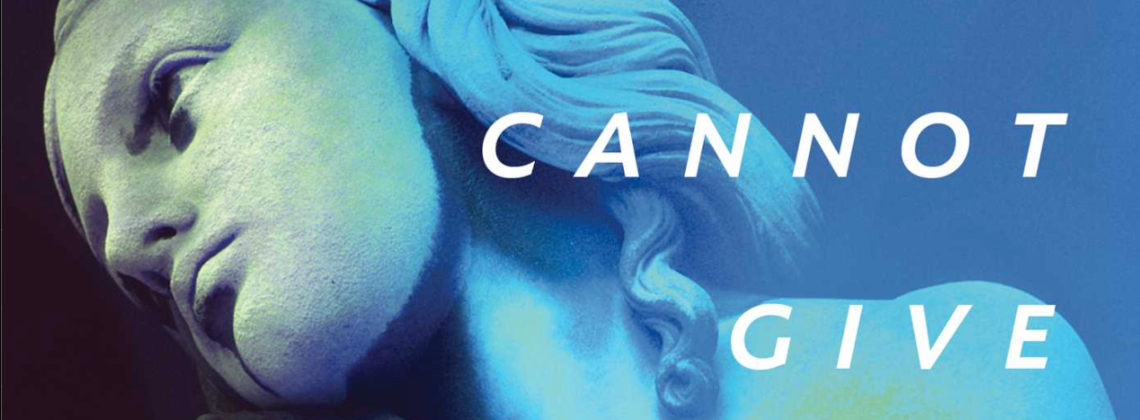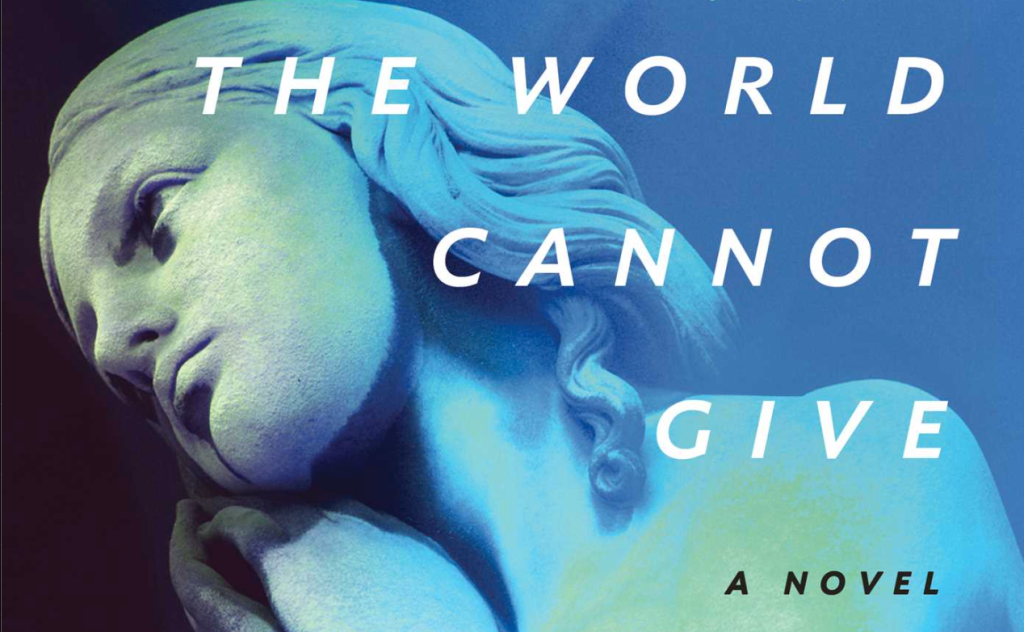

The World Cannot Give shows us Gen Z through a decidedly religious lens
The World Cannot Give by Tara Isabella Burton. Simon & Schuster, 2022. 320 pp., $27.95
Tara Isabella Burton’s The World Cannot Give definitively establishes her as a novelist with the knowledge, experience, and skill to delight and challenge readers—and inspire other authors—with fiction that is fully immersed in religious faith.
The story is set at a nominally Episcopalian elite Maine boarding school, St. Dunstan’s Academy, and centers on a small chapel choir that leads a choral evensong service for students every Friday night. In this setting we find that faith can inspire people who want moral seriousness and who believe in things that are worth dying for. We also find that faith can be twisted by teenage psychopaths to murderous consequences.
For post-Vatican II Catholics especially, and perhaps some ecumenical Protestants, the novel’s title may recall a stanza from disgraced lyricist David Haas’s hymn “You Are Mine.” But the line, echoing John 14:27, originally derives from a collect in the Evensong liturgy: “Give unto thy servants the peace which the world cannot give.”
The protagonist is Laura Stearns, a skeptical but impressionable girl who longs for deeper meaning and transfers to St. Dunstan’s hoping to experience a “shipwreck of the soul.” This phrase has become largely a marketing slogan for a school that once turned fisherman’s sons into clergymen but now grooms over-privileged youth for the Ivy League.
St. Dunstan’s follows the three-term calendar mostly unknown in America but more common elsewhere in the Anglophone world: Michaelmas in fall, Candlemas in winter, and Trinity in spring. The school year ends sometime after Trinity Sunday, the first Sunday after Pentecost. Burton divides the novel, which spans one academic year at St. Dunstan’s, into parts named for each term.
Laura develops a connection with the choir’s leader, the inimitable Virginia Strauss. A daughter of a progressive, secular Jewish family in the D.C. suburbs, Virginia spurns the “moral relativism” of her parents, the St. Dunstan’s school culture, and contemporary society in favor of transcendence, Christian faith, and the wish to believe in things worth dying for.
Virginia and Laura bond over their shared admiration for Sebastian Webster, a St. Dunstan’s alum who converted to Catholicism and went abroad at the age of nineteen, only to die in the Spanish Civil War. Webster railed against the “sclerotic modern world” and, Laura determined, was “world-historical,” as Virginia would soon doubtless be as well. While St. Dunstan’s students protest against the policy of mandatory attendance at evensong and eventually against the allegedly fascist Webster and his place as an honored figure in the school’s history, Virginia and Laura love each other for loving him.
The focus on dysfunctional friendships also drives the plot of Burton’s well-reviewed debut novel, Social Creature. Laura’s growing obsession with Virginia in The World Cannot Give recalls Louise in Social Creature, an outsider to New York’s trust-fund literary scene who befriends and eventually replaces Lavinia, a waif-like girl with a magnetic personality located squarely in the heart of that world.
Burton incorporated some religious elements into that book as well. Lavinia, on leave from Yale, has a social circle that includes an ex-Orthodox priest and a younger sister who reads John Henry Newman and applies only to Catholic colleges, to the dismay of her distant, monied WASP parents living in Paris.
Social Creature is a riveting novel that reveals not only Burton’s brilliant storytelling ability but also a rare skill in bringing readers into a world they may experience as completely foreign. So when in her new novel Burton devoted her imagination to constructing an overtly religious plot and themes for The World Cannot Give, readers who know nothing of New England boarding school culture, Anglican liturgy, or sacred choral music are quickly initiated into the St. Dunstan’s chapel choir. Readers get to know the choir’s secret-society vibes and its interaction with a student body indifferent to both the music and the God to whom it points. At the same time, readers develop a connection with Virginia, Laura, and a group of choir boys in both predictable and surprising ways.
However, for readers for whom terms like organ loft, crypt, surplice, and compline are familiar and evocative, the novel will be even more meaningful because it brings new life to religious traditions and practices that seem to be disappearing in our time. And anyone who treasures high church liturgy—whether as authentic prayers or merely as gorgeous texts set to soaring, sublime music—will especially appreciate Burton’s tender treatment of choral evensong as a cherished and aesthetically stunning expression of devotion not only in Anglicanism but throughout the world and across the Christian centuries.
Laura, struggling to find her own faith even as she admires Virginia’s with growing fervor and attraction, experiences transcendence on her first Friday night as an alto in the choir: “They sing the psalm, and the Magnificat, and the Nunc Dimittis. Laura can’t see through her tears. But at the final rounding of ‘Mine eyes have seen Thy salvation,’ she feels the cold abruptness of Virginia’s fingers, shaking through hers, tightening around her hands.”
The characters display levels of philosophical sophistication and worldliness unimaginable to me as a public-school kid who grew up singing in my Methodist church choir. But the novel spoke directly to my experience of being profoundly moved by sacred choral music in an aesthetic sense but never connecting to it emotionally or spiritually as Virginia and Laura do.
Laura can hardly believe that her male peers in the choir do not feel what Virginia feels. She is surprised and sad when one of the boys tells her “about few of them believing it, and for a moment fear passes over her, that they shouldn’t be doing this if they don’t mean it the way Virginia does.”
But Virginia’s self-professed moral realism causes its own trouble as the story unfolds. As Virginia unravels psychologically, Burton convincingly shows how obsessiveness and compulsiveness in religious devotion can be misdirected toward cruelty and self-destructiveness, especially when fear, humiliation, and sexual confusion abound.
The plot’s action and resolution follow the characters’ high-school drama storyline more than the religious themes, which are so evocatively depicted in the first two parts of the book. But at the end, Laura, who had quit the choir when Virginia was no longer a member, stands before her classmates to sing:
As it was in the beginning, is now, and ever shall be.
World without end. Amen.
Like Social Creature, The World Cannot Give incisively examines the social lives of Zoomer women and their experiences with food and body issues, social rivalries, sexuality (straight and queer), and the wrenching question of whether men or women are empowered or damaged by expectations about sex, and especially intimate photos and videos—with the added dynamic here of religion and spirituality, which seem to heighten experiences of both shame and desire.
Burton’s notable achievements with this book derive from more than just her successful first novel. She has a doctorate in theology from Oxford. She was also the national religion correspondent for Vox and a columnist for Religion News Service, and in 2020 published a nonfiction book on contemporary expressions of religion.
I can only hope that Burton turns her considerable talents toward faith in her future fiction. While many novelists formed in a religious milieu vividly depict characters’ departure from faith and critique the dark sides of religious people and institutions, Burton has given us the unforgettable Virginia, the rare sympathetic character with a convert’s zeal—until it all unravels.
But even in the face of manifold reasons for doubt, Burton has pointed us toward the hope, in literature and life, that faith can actually direct us to something real, something transcendent, something the world cannot give.
Jacob Lupfer is a writer in Jacksonville, Florida.